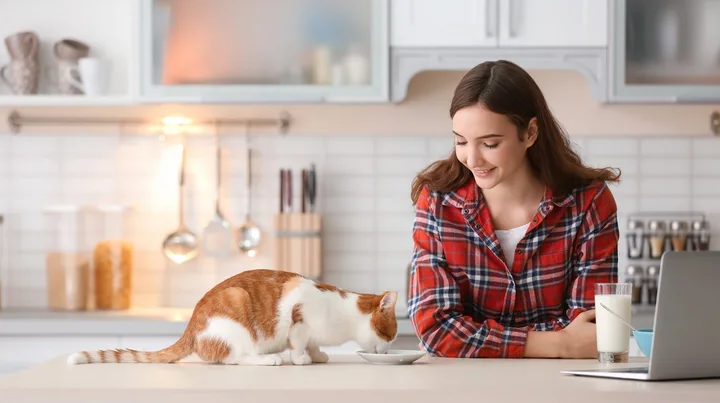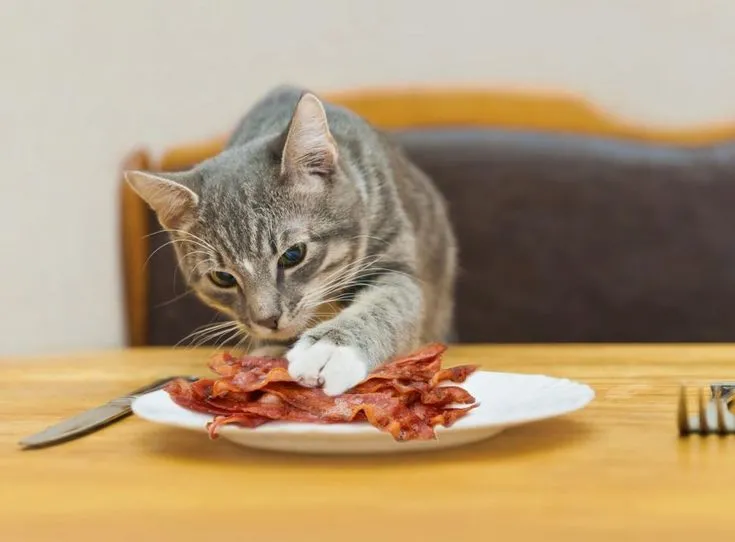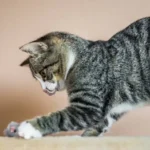Cats are notorious for their curious nature and discerning tastes. As a cat owner, you might find yourself wondering, “Can cats eat bacon?” This question pops up often, especially when sharing meals with your furry friend. While bacon is a favorite among many humans, it’s essential to delve into the nutritional aspects and potential risks of feeding this popular food to our feline companions.
What Do Cats Need in Their Diet?

Cats are obligate carnivores, which means their diet should primarily consist of meat. Essential nutrients for cats include:
- Protein: Crucial for building and repairing tissues.
- Fats: Important for energy and healthy skin.
- Vitamins and Minerals: Necessary for overall health, including vitamins A, D, and certain B vitamins.
A well-balanced diet ensures your cat maintains a healthy weight, has a shiny coat, and enjoys good digestion. While it can be tempting to share your favorite snacks, it’s vital to know what aligns with your cat’s dietary needs.
What Foods Are Safe for Cats?
Certain human foods are safe for cats and can even offer nutritional benefits. Here’s a list of some common safe foods:
- Chicken: A great source of protein, just be sure it’s cooked and unseasoned.
- Fish: Options like cooked salmon or tuna can be a delightful treat.
- Cucumbers: Surprisingly, many cats enjoy cucumbers, which provide hydration.
- Greek Yogurt: Plain, unsweetened Greek yogurt can be a protein-rich treat in moderation.
However, some foods can be harmful or toxic to cats. Be cautious with:
- Onions and garlic
- Chocolate
- Grapes and raisins
- Alcohol
The Nutritional Breakdown of Bacon
What Is Bacon Made Of?
Bacon is typically made from pork belly and is often cured, smoked, or both. The process enhances its flavor, making it a popular breakfast staple. However, this delicious treat comes with a catch.
Nutritional Content of Bacon
Here’s a brief overview of bacon’s nutritional profile per 100 grams:
| Nutrient | Amount |
|---|---|
| Calories | 541 |
| Protein | 37 grams |
| Total Fat | 42 grams |
| Saturated Fat | 14 grams |
| Sodium | 1,720 mg |
As you can see, bacon is high in fat and sodium, which raises concerns for our feline friends.
Can Cats Eat Bacon Safely?
The Risks of Feeding Bacon to Cats
While it might seem harmless to give your cat a small piece of bacon, several risks are associated with this fatty food:
- High Fat Content: Cats can struggle with obesity, and high-fat foods like bacon can exacerbate this issue.
- Pancreatitis: Ingesting too much fat can lead to pancreatitis, an inflammation of the pancreas that can be serious.
- Sodium Levels: Bacon’s high sodium content can lead to excessive thirst, urination, and even sodium ion poisoning.
Signs of Discomfort or Allergic Reaction
If your cat does indulge in bacon, watch for any signs of discomfort or an allergic reaction. Common symptoms include:
- Vomiting
- Diarrhea
- Lethargy
- Loss of appetite
If you notice these symptoms, consult your veterinarian promptly.
Alternatives to Bacon for Treating Your Cat
Safe Treats for Cats
Instead of bacon, consider offering your cat healthier treat options. Here’s a list of cat-friendly foods:
- Cooked chicken or turkey: Lean meats provide protein without excessive fat.
- Cooked fish: Fish like salmon or tuna can be great, but always serve in moderation.
- Cucumbers: These crunchy snacks can help keep your cat hydrated.
- Greek yogurt: A dollop can be a fun, protein-rich treat, but ensure it’s plain and unsweetened.
Making Bacon-flavored Treats for Cats
If your cat craves the taste of bacon, you can create homemade bacon-flavored treats without the harmful ingredients. Here’s a simple recipe:
Homemade Bacon-Flavored Cat Treats
Ingredients:
- 1 cup whole wheat flour
- 1/4 cup bacon bits (preferably low sodium)
- 1/4 cup water or low-sodium chicken broth
- 1 egg
Instructions:
- Preheat your oven to 350°F (175°C).
- In a bowl, mix all ingredients until a dough forms.
- Roll out the dough and cut it into small shapes.
- Bake for 15-20 minutes or until golden brown.
- Allow to cool before serving.
Conclusion: Should You Share Your Bacon with Your Cat?
In summary, while bacon may seem like a tasty treat, it poses significant health risks for your cat. The high fat and sodium content can lead to obesity and other serious health issues. Instead, consider healthier alternatives that align with your cat’s dietary needs. Treats like cooked chicken, fish, cucumbers, and Greek yogurt can offer your furry friend a delicious and safe snacking experience.
Frequently Asked Questions (FAQs)
Can Kittens Eat Bacon?
Kittens should not eat bacon. Their digestive systems are still developing, and high-fat foods can cause issues.
What Happens if My Cat Steals Bacon?
If your cat steals bacon, monitor them closely for any signs of distress or illness. If they show symptoms, contact your veterinarian.
How Often Can I Treat My Cat with Bacon?
If you choose to give your cat bacon, do so sparingly and in tiny amounts. Regular treats should come from safer, healthier options.







